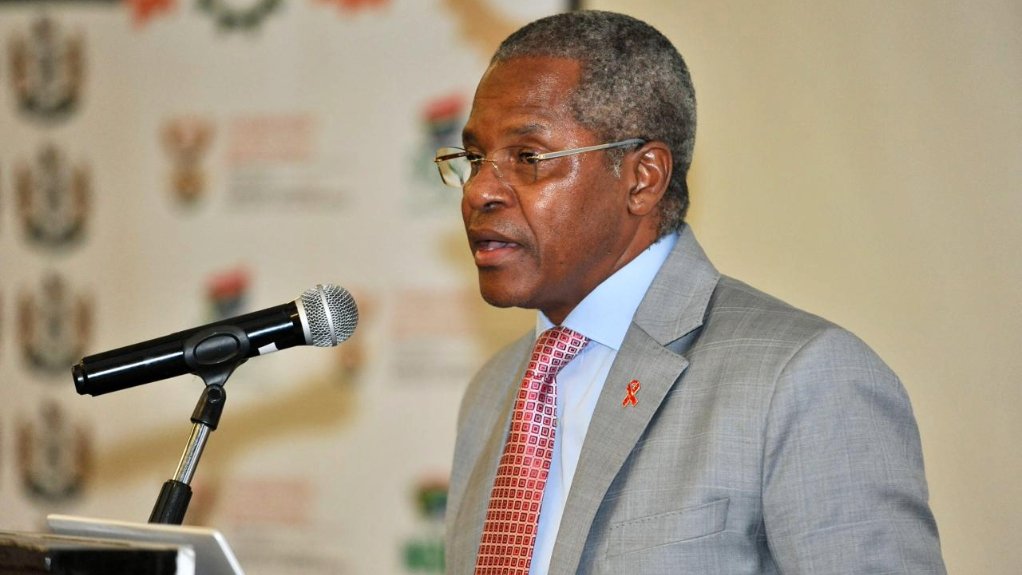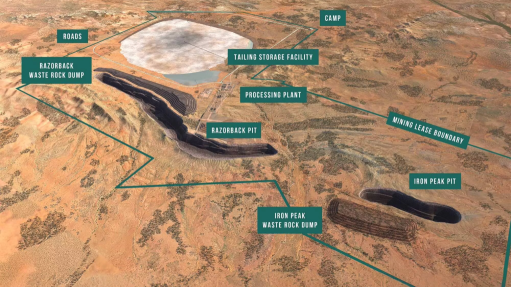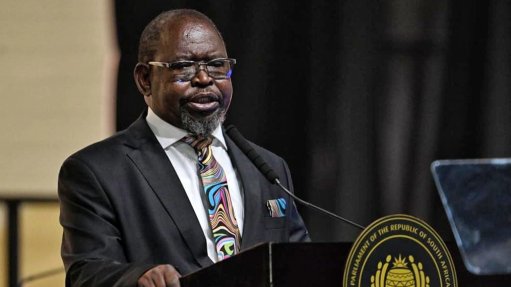Municipal empowerment and public-private partnerships emerge as key drivers of climate adaptations
As South Africa transitions to a low-carbon economy, independent business movement the National Business Initiative (NBI) says multiple opportunities exist for strengthening localisation, public transport and the use of renewable energy.
NBI CEO Shameela Soobramoney says the private sector, in this regard, has an important role to play in acting decisively and driving economic growth, while government needs to enact ambitious policy and investment frameworks to drive climate action.
Only through ongoing collaboration and partnership can South Africa achieve sustainable long-term development, including with international climate financiers, she points out.
NBI itself has unlocked more than R2-billion for low-carbon companies in the country through its Climate Finance Accelerator, with the organisation recognising the importance of adapting to climate shocks – especially in agriculture, logistics and in respect of infrastructure.
Soobramoney says climate adaptation is no longer optional and must include social inclusion principles such as gender equity and skills development. Additionally, by localising value chains, opportunities can be provided to marginalised communities as the country transitions to cleaner energy generation practices and greener public transport.
She emphasises the need to balance environmental goals with community realities. Cooperative Governance and Traditional Affairs Minister Velenkosini Hlabisa agrees, adding that the goal is to build safer and sustainable communities while investing in resilient infrastructure.
He explains that South Africa has already experienced extreme weather events – including 2024 having been the hottest year on record and with devastating floods having been experienced in many parts of the country – which have prompted five priorities that government is focused on.
These include coordinated climate planning, stronger partnerships with the private sector, enhanced early warning systems and empowering municipalities.
Hlabisa confirms that a review of the disaster management system is under way to reflect climate realities and strengthen municipal-level coordination, which is led by the National Disaster Management Centre.
Additionally, local governments are able to access climate finance through national programmes such as the Local Government Climate Change Support Programme, including climate bonds and blended finance solutions.
Hlabisa stresses the need to integrate climate risk into integrated development plans and municipal projects, and for municipalities to develop climate risk profiles together with universities.
He lauds the efforts of the University of the Witwatersrand, for example, in testing solar-powered microgrid systems for underserved communities in Pretoria.
Hlabisa recognises that empowering municipalities stand at the frontline of climate adaptation, requiring technical skills training and financial instruments to upgrade stormwater systems and expanding water storage capacity for instance.
“The climate transition’s success depends on the empowerment of municipalities,” he states.
He cites other necessary efforts to combat climate change as that of working with traditional leaders in communities, which often act as first responders in times of crisis and often help advance initiatives to restore degraded landscapes.
“Traditional leaders can anchor community cohesion and prepare for the future,” Hlabisa says.
He envisions a country where every municipality, community and household is safer and more resilient, including through effective disaster management, protected ecosystems and strong governance.
From a B20 point of view, as South Africa recently hosted various B20 gatherings to highlight the country’s development imperatives to the world, B20 Sherpa Cas Coovadia says the Energy Mix and Just Transition Task Force successfully developed recommendations relevant to climate action in South Africa, including skills development to equip the workforce for the energy transition, supply chain resilience and global market access.
He confirms that the NBI is exploring mechanisms to track and measure impact from the B20 recommendations going forward.
INDUSTRY VIEW
Meanwhile, Minerals Council South Africa CEO Mzila Mthenjane says the mining industry has long played a role in climate leadership and economic growth.
He confirms that most companies are actively pursuing sustainable practices, including investment in renewable energy and new energy vehicles. About 16 000 MW of private renewable-energy projects are in the pipeline, valued at R275-billion, while many companies are piloting battery-electric vehicles and green hydrogen for heavy-duty applications.
“To make mining a driver of shared prosperity, the industry needs regulatory certainty, including efficient licensing and permitting, infrastructure reliability and digital transparency to attract global investment and ensure a just and inclusive transition,” Mthenjane states.
His recommendations include incentivising mainstream processing of critical minerals through special economic zones, competitive electricity tariffs and targeted government support. By building an effective critical minerals proposition, South Africa can be a sustainable source of minerals for itself and for the world.
“Africa is no longer a peripheral voice but a co-architect in global governance,” Mthenjane points out.
For him, the mining industry is a key example of how mineral wealth can drive socioeconomic development and the global energy transition, while maintaining high environmental and social standards.
“Climate leadership is not just about reducing emissions but also about creating economic systems that thrive in a low-carbon future. Building resilient local economies that thrive beyond the life of the mine is crucial,” Mthenjane says.
ROLE OF INVESTORS
The Industrial Development Corporation (IDC) has devised sustainable industrial pathways according to which it provides financing and support to businesses and government.
The IDC recognises the importance of balancing climate change responses with South Africa’s legacy problems, including premature deindustrialisation, unemployment, poverty and inequality.
It defines sustainable industrialisation as the maintenance and expansion of industrial capacity in a socially inclusive and environmentally responsible manner.
The organisation’s industrial pathways go beyond mitigating harm to include long-term inclusive growth and employment through low-carbon transitions.
For example, the IDC often links small- and medium-sized businesses with larger companies to ensure value-chain benefits for communities, as well as partners with entities such as the Just Energy Transition Project Management Unit within the Presidency to create a conducive environment for new industries.
Ultimately, the IDC is advancing a responsible investment policy, a comprehensive environmental, social and governance management system that includes resilience markers, and tools for assessing investments.
The organisation’s credit committee uses these tools to assess each transaction to ensure alignment with the responsible investment policy.
The speakers discussed climate change opportunities and imperative at an inaugural Climate Change Summit hosted by NBI on November 24 and 25 in Sandton, Gauteng.
Article Enquiry
Email Article
Save Article
Feedback
To advertise email advertising@creamermedia.co.za or click here
Press Office
Announcements
What's On
Subscribe to improve your user experience...
Option 1 (equivalent of R125 a month):
Receive a weekly copy of Creamer Media's Engineering News & Mining Weekly magazine
(print copy for those in South Africa and e-magazine for those outside of South Africa)
Receive daily email newsletters
Access to full search results
Access archive of magazine back copies
Access to Projects in Progress
Access to ONE Research Report of your choice in PDF format
Option 2 (equivalent of R375 a month):
All benefits from Option 1
PLUS
Access to Creamer Media's Research Channel Africa for ALL Research Reports, in PDF format, on various industrial and mining sectors
including Electricity; Water; Energy Transition; Hydrogen; Roads, Rail and Ports; Coal; Gold; Platinum; Battery Metals; etc.
Already a subscriber?
Forgotten your password?
Receive weekly copy of Creamer Media's Engineering News & Mining Weekly magazine (print copy for those in South Africa and e-magazine for those outside of South Africa)
➕
Recieve daily email newsletters
➕
Access to full search results
➕
Access archive of magazine back copies
➕
Access to Projects in Progress
➕
Access to ONE Research Report of your choice in PDF format
RESEARCH CHANNEL AFRICA
R4500 (equivalent of R375 a month)
SUBSCRIBEAll benefits from Option 1
➕
Access to Creamer Media's Research Channel Africa for ALL Research Reports on various industrial and mining sectors, in PDF format, including on:
Electricity
➕
Water
➕
Energy Transition
➕
Hydrogen
➕
Roads, Rail and Ports
➕
Coal
➕
Gold
➕
Platinum
➕
Battery Metals
➕
etc.
Receive all benefits from Option 1 or Option 2 delivered to numerous people at your company
➕
Multiple User names and Passwords for simultaneous log-ins
➕
Intranet integration access to all in your organisation




















